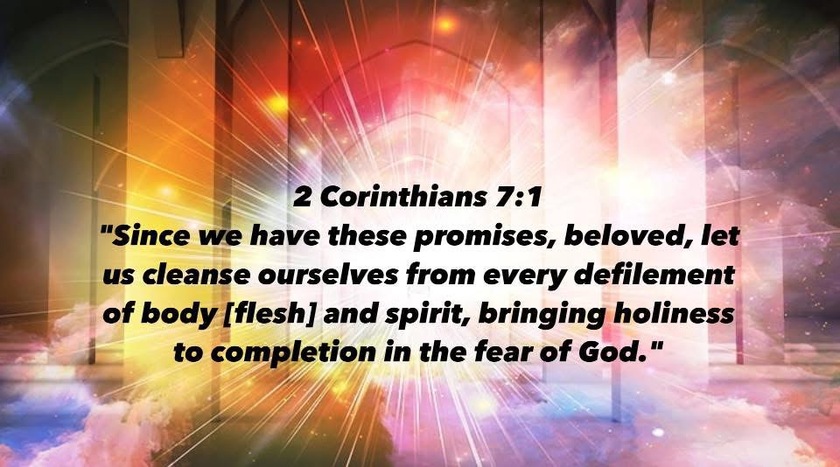Human Limitations vs. Divine Omniscience: The "Why" of Jesus’ Choice
John 15:18-19
"If the world hates you, know that it has hated me before it hated you. If you were of the world, the world would love you as its own; but because you are not of the world, but I chose you out of the world, therefore the world hates you."
Since Jesus faced persecution for His teachings, identity, and divine mission, His disciples will also face opposition for aligning themselves with Him and proclaiming His gospel message.
The "world" here refers to the religious and political systems, their values, principles, and the people opposed to God’s kingdom. Jesus warns His disciples that, just as He faced hatred for His teachings and identity, they too will face opposition because they are set apart by Him.
And Jesus goes on to say...
John 15:20-21
"Remember the word that I said to you: ‘A servant is not greater than his master.’ If they persecuted me, they will also persecute you. If they kept my word, they will also keep yours. But all these things they will do to you on account of my name, because they do not know him who sent me."
The phrase "A servant is not greater than his master" underscores that followers of Jesus should expect no better treatment than He received. This opposition stems from ignorance of God, the One who sent Jesus. The world’s hostility is not merely personal but rooted in a rejection of divine truth and authority.
If you do what Jesus commands, love one another, you are his friends. And now you are subject to the same outside pressures and influences from those who have no love for God. This scripture lesson emphasizes the importance of proclaiming Jesus’ name despite opposition, trusting that some will receive the message. Though some will reject his message simply because it comes in his name [Jesus], likewise some who the Father has drawn will hear the message and his name and receive redemption.
Food for thought:
How does being "chosen out of the world" and called Jesus’ friend shape your sense of purpose, especially when facing opposition?
Charles Spurgeon once commented:
"I believe the doctrine of election, because I am quite certain that, if God had not chosen me, I should never have chosen Him; and I am sure He chose me before I was born, or else He never would have chosen me afterwards; and He must have elected me for reasons unknown to me, for I never could find any reason in myself why He should have looked upon me with special love." [Spurgeon’s A Defense of Calvinism]
If I was like God, as my name suggests, I would never fail to make the right choices. I'd never screw up or make mistakes. If I were God I would, of course, save myself from sin and death. I'd have to begin there. And then I'd move on to saving those whom I love and have affection for. And along the way I'm sure folks could convince me that I should save them as well. Pretty soon I'd find enough good reasons to save just about everyone. Maybe just withholding grace from those who will not appreciate my love for them. You know, those meanspirited people with dark souls.
Now of course I'm being facetious, but I wanted to be honest and reflect upon what Spurgeon was driving at. Unlike us, God doesn’t choose based on fleeting emotions or incomplete knowledge but on His eternal purpose (Ephesians 1:4-5). He knows everything. I on the other hand know nothing in advance of my own decisions made today. This highlights the perfection of God’s nature, His omniscience and righteousness ensure His decisions are flawless, unlike human choices, which are marred by error, time, and sin.
I make decisions predicated upon what I know. And God does also. And therefore, on the basis of his foreknowledge he elects those who love God and keep his Son's name and word. God’s sovereignty is choosing His people, not based on their merits but on His perfect will. Our human decisions often rely on subjective factors like affection or perceived worthiness. God, however, operates from perfect foreknowledge and purpose, choosing His people not for their merits but for His glory.
But what about what Jesus said? He chose his people. And he's human.
In John 15:19, Jesus’ choice of His disciples "out of the world" is a divine act, free from human error because he is also God.
More Food For Thought:
Does God’s election stem from His foreknowledge of who will believe (the Arminian view), or is it based solely on His sovereign will, independent of human response (as in Calvinism, which Spurgeon held)?
Spurgeon, in sermons like Election (1855), leaned heavily on unconditional election, not based on foreseen faith but God’s free grace. He cites Romans 9:11-13, where God chose Jacob over Esau "before the twins were born or had done anything good or bad," to show that election precedes human action.
Moving On Now and Pulling It All Together
Now, Jesus goes on in today's lesson to talk about why, not so much how, but why he has chosen those he has chosen...
John 15:16-17
"You did not choose me, but I chose you and appointed you that you should go and bear fruit and that your fruit should abide, so that whatever you ask the Father in my name, he MAY give it to you. These things I command you, so that you will love one another."
"He may give it to you"?
Hmmm
Jesus is focusing on our prayers, and on establishing that our focus should be on The Father, but in his name [Jesus]. And he adds a possibly off-putting thought that doesn't seem to align with other statements he's made about prayer (e.g. John 14 or 16:23).
John 16:23
"In that day you will ask nothing of me. Truly, truly, I say to you, whatever you ask of the Father in my name, he WILL give it to you."
It seems to me that Jesus is saying that the Father has his good will figured out but is desiring that we should come to him in prayer. Not to direct God's good will, but to receive it. This is not a blank check for prayer but a promise that prayers aligned with their God-given purpose will be answered. The phrase Jesus uses "he MAY give it to you" (Greek: dō autō humin) reflects a subjunctive mood, which can indicate possibility or purpose ("so that he might give" ). This doesn’t imply uncertainty on the part of God but it highlights the conditional nature of the promise: prayers must align with Jesus’ name (His will, his character, and his mission). In John 16:23, Jesus speaks of a future reality ("in that day," likely post-resurrection or post-Pentecost and the outpouring of the Holy Spirit). The phrase "he WILL give it to you" (Greek: dōsei humin) uses a future indicative, conveying certainty. This reflects the new era of direct access to the Father through the risen Christ, empowered by the Spirit.
In John 15, He is preparing the disciples for their mission, emphasizing dependence on Him and the Father. By John 16:23, Jesus is looking ahead to the post-resurrection reality, where the disciples’ relationship with the Father is fully realized through His mediation. Both passages assume that prayers "in Jesus’ name" are not self-serving but rooted in the disciples’ God-given election and mission.
The disciples (and us) are chosen to produce lasting spiritual fruit, lives marked by obedience, love, and the spread of the gospel. This fruit "abides" because it is rooted in God’s eternal purposes, not fleeting human efforts. And our prayer life is not about manipulating God’s will but aligning with it, receiving what God desires to give for the fulfillment of His mission. God’s choice is not based on human merit but serves His redemptive plan, empowering believers to fulfill their calling through dependence on Him.
That's it, that's what all this faith business is truly all about.
Prayer:
Heavenly Father, (always direct your prayer to the Father)
We come before You in the name of Your Son, Jesus Christ, who chose us before we could choose Him. Thank You for Your sovereign grace, calling us to bear fruit that abides and to love one another as You have loved us. Align our hearts with Your perfect will, that our prayers may reflect Your purposes and glorify Your name. Grant us the humility to seek Your good will, the faith to trust Your answers, and the boldness to approach You through the mediation of our Savior. May Your Spirit empower us to live out our calling, bearing lasting fruit for Your kingdom.
In Jesus’ holy name, we pray. Amen.




















